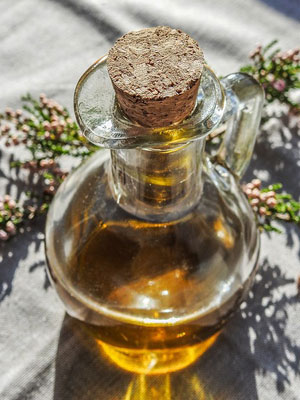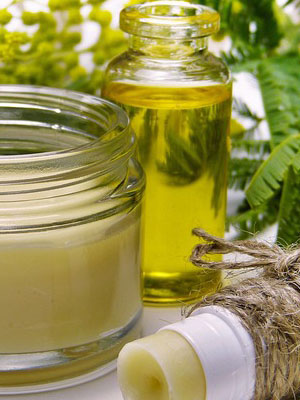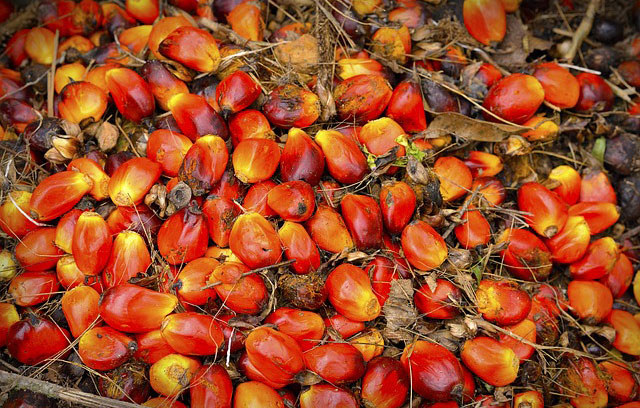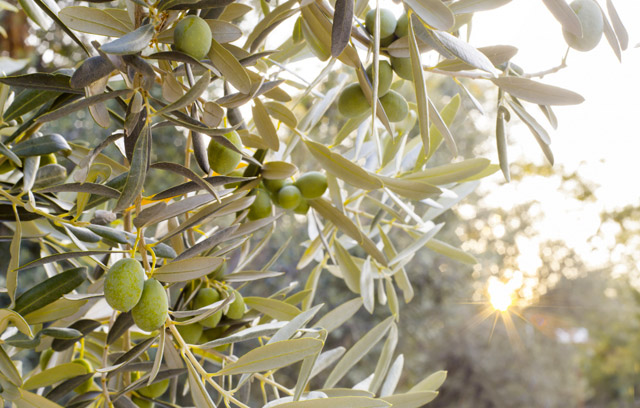GrainProTrade – Vegetable oils wholesale at producer prices
Our company GrainProTrade supplies vegetable oils directly from the farmers at favorable conditions. You can safely buy vegetable oils from us without worrying about the quality, as all of our products are consciously selected by our QM staff in Central Asia and thus meet the highest standards, which guarantees the expected quality of the goods. Besides the high standard, the products are sold at an affordable wholesale price. The conditions of sale of vegetable oils can be specified at any time in writing or by telephone with the manager. Our team delivers ordered vegetable oils to our customers within 5 working days.
The main advantages of the ZusaWorking with our company:
- the high level of professionalism of our entire team, which ensures a hassle-free delivery of high quality Vegetable Oils in the shortest possible time;
- an appropriate price level, since we work directly with producers, e.gusamen work;
- convenient delivery straight to you.
Contact our managers on the website or by phone. We offer high quality vegetable oils at an optimal price!

Vegetable Oil

almond oil

Vegetable oils

Vegetable oils

Olive oil
All about vegetable oils
Vegetable oils are one of the staple foods and serve as the most important source of energy for humans. Each gram of fat oxidized in the body provides about 37,7 kj (9 kcal) of energy. Fatty acids such as linoleic acid, linolenic acid found in vegetable oil are called essential or essential and their absence in food can lead to various diseases. A person should consume 25-30 g of vegetable oil daily.
Essential (polyunsaturated) fatty acids contribute to the elimination of excess cholesterol, activate enzymes in the digestive tract, stimulate the body's protective mechanisms, take part in the regulation of blood pressure, the work of the endocrine glands, have a positive effect on the state of the central nervous system.
Phospholipids, which are part of vegetable oil (the main component of cell structures), are crucial for the permeability of cell membranes and intracellular exchange. The most important of the phospholipids is lecithin, it shows a lipotropic effect, prevents obesity in the liver and promotes better fat absorption.
Vitamin E (tocopherol) contained in vegetable oil has antioxidant properties, vitamin K stimulates blood clotting and strengthens blood vessels. Carotenoid pigments (carotenes) form vitamin A during oxidative decomposition in animal tissues.
Edible oils are widely used in the manufacture of mayonnaise and margarine, added to dough to improve the quality and calorie content of flour products, to lubricate baking tins, in the canning industry in the production of fish, meat and vegetable preserves.
The butter that remains after separation contains a lot of protein, minerals, vitamins and has a high biological value. They are used for direct feeding of farm animals, for the production of feed, for the production of food and feed proteins.
Currently, the country produces several types of vegetable oils: sunflower, soybean, rapeseed, flaxseed, castor oil, mustard oil, corn oil, sesame oil, etc. By volume of production, sunflower oil ranks first.
Depending on the organoleptic and physico-chemical parameters, vegetable oil is divided into commercial grades and brands.
Depending on the degree of purification, the oil is divided into the following types:
– unrefined, mechanically cleaned, it has an intense taste and smell, contains all accompanying substances, has a high biological value;
- hydrated, mechanically cleaned and hydrated;
– Refined, with various purification methods, this oil is transparent, impersonal in taste and smell, has a reduced biological value.
A few years ago, chefs had a fairly modest selection of vegetable oils. Sunflowers, olives, soy, peanuts, corn, buckwheat, canola and maybe sesame. At the same time, in order to collect the entire collection of oils on the kitchen shelf, one had to show the wonders of the investigation. However, today the line of rare oils is also not available in every store, but it is still much easier to compose. And even significantly diversify with such exotics as oils from almonds, grape seeds, macadamia or rice bran.
Of course, such a variety cannot fail to please, because the culinary horizon, the opportunities for experimentation, the palette of tastes of even the usual dishes are significantly expanded. But on the other hand, it is not always clear how exactly one can and should use this or that oil in order to fully realize its potential and end up not being disappointed in buying it. Otherwise, an exotic product risks becoming a museum exhibit for unnecessary expensive purchases.
Sunflower oil
The greatest vitamin value has sunflower oil, which is the most common and popular in Ukraine. Sunflower oil has been a national product since the beginning of the 19th century. In the pre-revolutionary period, butter was only used on holidays, and vegetable oils were used on weekdays (e.gusatogether with sunflowers also mustard oil, linseed, hemp oil).
The widespread distribution of sunflower oil helped the Church gain recognition as a lean product. By the way, modern nutritionists fully show solidarity with the Church. Because vegetable oils are the main sources of polyunsaturated fatty acids (linoleic and linolenic acids), which are not synthesized in the body but are only supplied with food; They regulate important processes of physical activity and are the best allies in the fight against atherosclerosis, the most common cause of cardiovascular diseases and cerebral circulatory disorders. Sunflower oil is therefore better suited not only for diet therapy, but also for normal daily nutrition.
Sunflower oil is one of the most important vegetable oils that is of great economic importance. It is used both directly in food and in the manufacture of margarine, culinary fats, in soap manufacture and in the paint industry. Sunflower oil is part of various medicines (for example, sunflower-based sea buckthorn oil is made).
Corn oil
Corn oil is the most useful of the available and common oils for us, which is obtained from corn germ. In his chemical Zusait's like sunflowers. This oil is golden yellow in color, clear, odorless.
Only refined oil is offered for sale. Linoleic acid in it up to 50%. Scientists claim that it is particularly high in omega-6 acids and vitamin E. Corn oil contains unsaturated fatty acids and lecithin, has a stimulating, softening and nourishing effect.
The unsaturated fatty acids in this oil increase the body's resistance to infectious diseases and promote the elimination of excess cholesterol from the body. Due to its pronounced dietary properties, it is widely used in the manufacture of diet products and baby food. Vitamin E strengthens the human immune system and the muscular system. This vitamin is also known as the "vitamin of youth" because it is an antioxidant and slows down the aging process in the body.
Corn oil is used in the baking industry to prepare mayonnaise, topping up salads, and to fry products.
Corn oil is particularly good for frying and braising meat, fish and vegetables because it does not form carcinogens, does not foam and does not burn. It is not for nothing that corn oil is the main ingredient used in the heat treatment of food in restaurants around the world. It is also good to use in potato and carrot salads and vegetable stews.
Olive oil
Olive oil is obtained by pressing the pulp of the olives. The color of olive oil is light yellow with a greenish tint, the taste and smell are pleasant but specific. At a temperature of about 0 ° Celsius, the oil freezes, when heated it melts and becomes transparent. Olive oil contains less essential fatty acids and vitamin E than some other vegetable oils, but has good effects on the body's digestive system.
This oil has become widespread and well-known in Europe thanks to the so-called “Mediterranean diet”, the essence of which is to reduce the consumption of animal fats and replace them with vegetable fats. The best varieties of olive oil are obtained through the cold-pressed process (these oils are called “extra virgin”). In cooking, this oil is used as a salad oil and used to cook various dishes at a temperature not higher than 180 °C, since it decomposes at higher temperatures.
To date, there are countless variants of dishes with olive oil. It's no wonder that all Mediterranean cuisine uses it as a basic component. Experts point out that it adds a special "Southern" flavor to salads, pasta sauces and chops.
nutl
The category of exotics mainly includes nut butters, which can be described as aromatic oils. They are used in small amounts as a flavor when cookingusatz used in salads, sauces, pasta dishes and in baked or steamed products and baked goods. Such oils are usually not fried, since at high temperature their taste is destroyed, they are mainly added to ready-made dishes, just a few drops to give flavor, and dishes whose cooking temperature does not reach the critical degree (it is necessary for any type of oil his own).
In addition to the pleasant taste, nut butters are good for your health.
They contain almost no saturated fat, which is poorly absorbed by the body and increases the risk of cardiovascular disease. Conversely, nut butters are high in monounsaturated fats, which help lower bad cholesterol levels. This is especially true for oils from almonds, hazelnuts, macadamia, pecans, pistachios.
Walnut oil is high in polyunsaturated fats and omega-6 and omega-3 fatty acids, which thin the blood, thereby preventing the formation of blood clots that cause strokes. In addition, almond and hazelnut butter, like sunflower oil, are rich in vitamin E.
However, for people who are allergic to nuts, such oils may be contraindicated as not all oils are able to remove the allergic protein. This is especially true for nut butters obtained by cold pressing.
Mustard oil
Mustard oil is extracted by pressing the seed of oilseed cultivars - plants of the cruciferous family. The color of the oil is yellow, sometimes with a greenish tint. Contains relatively little linoleic acid. The specific taste and intense color of mustard oil limit its use.
Chefs note that it's savory (and absolutely not bitter!), emphasizing the natural flavor of vegetables. Fish and meat fried in this oil are especially tasty. However, it has antiseptic and bactericidal properties. For this quality, many nutritionists call it a ready-made drug.
sesame oil
Sesame oil (sesame oil) is obtained from the sesame seed. The oil is almost odorless and has a pleasant taste. Sesame oil is a food product equivalent to other vegetable oils.
Firstly, it contains practically no vitamins (it contains no vitamin A and little vitamin E). On the other hand - in excess of unsaturated fatty acids, phosphorus and calcium - is an excellent prevention of osteoporosis.
The oil is used in confectionery, canning and other industries, as well as for technical purposes.
It should also be noted that light sesame oil is added to salads “with an oriental slant”. While meat, chicken, rice, noodles and vegetables are fried in dark oil (made from fried seeds).
linseed oil
Flaxseed oil, extracted from lena seeds, is one of the quick-drying oils. This ability is due to a high content of unsaturated fatty acids. Flaxseed oil has an important technical meaning: it produces quick-drying varnishes, paints and linseed oil. It is also used in food (refined), is used in medicine (for example, as a basis for the manufacture of ointments).
According to experts, it is a champion in omega-3 acidity with a score of 67% in the world rankings. However, it quickly deteriorates with heat and light. In case you do not immediately appreciate the specific taste, try mixing it with crushed garlic and stuffing it with a piquant mixture of soups and porridges, pouring it with boiled potatoes and adding herbs to the cottage cheese. While a teaspoon of flaxseed oil works as an excellent laxative overnight.
pumpkin seed oil
It is known that it contains a lot of omega-3 and omega-6 polyunsaturated acids, there are vitamins B, PP, C. It also does not tolerate high temperatures and light. And its slightly sweet taste is good in meat salads, it is seasoned with fish and vegetable soups and added to the batter.
Grapeseed oil
To date, it's an excellent source of vitamin E (the daily rate is in a tablespoon!) and omega-6 acids. In addition, the light aroma of grapes does not clog, but, on the contrary, enhances other smells. Therefore, cooks fill them with green and fruit salads, add them to marinades. It should also be noted that it is resistant to high temperatures and does not taste good when frying.
Palm oil
Palm oil, extracted from the fruit of an oil palm, is the least valuable of all vegetable oils. It is orange, solid in consistency and externally resembles pork fat, hardens at a temperature below 30 °C. The pulp contains up to 70% oil rich in carotenoids and palmitic acid.
It is used for cooking in a number of Eastern countries where pork fat is not used for religious reasons. In most countries this product is used as a hardener in the manufacture of soap and candles, margarines, in the cooking and confectionery industries. Palm oil is eaten only in preheated form - it is unsuitable for the preparation of cold dishes.
The modern food industry has become firmly “accustomed” to palm oil. Its advantages are a high density (almost like butter) and the absence of fatty acid transizomers in the Zusacommendation. An important factor is the low cost of the oil palm product. Palm oil is quite suitable for food, but it has no outstanding properties, neither harmful nor useful.
Red palm oil, obtained from the fruits of a special type of oil palm, is quite different from the usual. In red palm oil there are many biologically active substances, for example up to 500 milligrams of beta-carotene and up to 800 milligrams of tocopherol for each kilogram of product. Red palm oil can be found at a pharmacy.
Another palm product is palm kernel oil, it is given from the same plants as conventional palm oil - oil palms. But they are not made from the peel of the fruit, but from seeds. Palm kernel oil has properties similar to coconut oil.
The availability of different types of palm oils for sale causes some confusion, since completely different products are hidden under similar names. So make no mistake in choosing.
Rapeseed oil
After the Zusacomposition of fats and acids is the most balanced rapeseed oil obtained from rapeseed. It was most commonly spread in western and central Europe, China, India and Canada. Rapeseed oil has a high content of erucic acid and therefore requires mandatory refining. It is mainly used in the soap, textile, leather industries, as well as for the production of olif. After refining and hydrogenation, the oil is used in the margarine industry. It is also produced for home use, but due to its specific taste, it is significantly inferior to sunflower.
For the “nuclei” that control blood cholesterol levels, it is important that up to 15% of the omega-3 alpha-linolenic acid in the Zusacomposition of rapeseed oil.
Commercially, canola oil can be found by the "name" of canola oil. There is almost as much oleic acid in rapeseed oil as in olive oil, in terms of the amount of linoleic acid, rapeseed oil catches up with sunflower.
With the most balanced Zusarapeseed oil also has disadvantages. It deteriorates quickly enough, which is manifested in the appearance of a specific rancid taste. Therefore, it is a bad idea to buy canola oil for the future. Sometimes it is said that canola oil returns fish. This, in principle, harmless problem can manifest itself, and not in all varieties, when the oil is heated above 180 degrees.
Soybean oil
Soybean oil is obtained from soybeans. It occupies an important place in the world production of vegetable oils. It has a straw yellow color, characteristic smell and taste. Soybean oil is used as food and as a raw material for the manufacture of margarine. Only refined oil is used for food.
Scientists claim that in its Zusacomposition is similar to fish oil. However, one of its most valuable elements is lecithin, which normalizes blood cholesterol levels. It is traditionally used in Japanese and Chinese cuisine: it goes well with rice and oriental spices.
In the United States, soybean oil occupies almost 4/5 of the oil market. Soybean oil is used in the same way as sunflower oil.
Cotton oil
Cotton oil, which is extracted from the cotton seed, is popular in Central Asia. Unrefined cottonseed oil is a red-brown liquid with a peculiar odor and bitter taste; refined is straw yellow. Only refined oil is used in food, since unrefined cotton oil contains a toxic substance - gossypol.
The chemical ZusaThe composition and properties of cotton oil depend on the type of cotton blend, as well as the region and processing conditions. Cottonseed oil is used primarily to make oil, and refined is used in food, making preserves, margarine, and culinary fats.
In order to remove the toxic pigment contained in the cottonseed, the oil goes through many degrees of purification. But if you fry meat and vegetables in this oil, you get an appetizing crispy crust. Hence it is that a true Central Asian pilaf is prepared for it.
Vegetable oils are made from the seeds of various oil crops (sunflower, soybean, mustard, cotton, etc.), the corn kernel, the fruits of the olive tree, the peanut (peanut), and other plants.
The main oil crop in our country is sunflower. The best sunflower varieties are characterized by high yields and amounts of oil. In highly human sunflower seeds, the oil content can be 54-57% of their weight.
Production of vegetable oils. The main processes used in the production of vegetable oils are: cleaning the seeds from impurities, collapsing (skinless seeds are treated without collapsing), separating the husks from the kernel, grinding the kernel, damp-heat treatment of the kernel – mash obtained.
From the resulting mash, the oil is extracted by pressing or extraction, or a combination - first by pressing and then by extraction.
Oil extraction is done by pressing on compression presses. First, the oil from the mash is pre-injected. In the process, 60-85% fat is extracted. The resulting oil is called press oil. In the oil cake (the rest of the oil material), the oil content is 14-20%. Therefore, after the appropriate preparation, the oil is additionally extracted from the cake by pressing at higher pressure. The oil content in the cake is reduced to 6%.
Oil extraction by extraction is based on the ability of fats to dissolve in some solvents (low boiling gasoline). In this method, the prepared oil material moves towards the solvent in the extractor. The solvent extracts the oil from the extracted material, a miscella is formed (vegetable solution: via the oil in the solvent). Filtration removes impurities from the miscella, and then the solvent (gasoline) is distilled while heating and under vacuum. The resulting extraction oil is cooled. Up to 1% fat remains in the scrap.
Oil extracted from seed in any way contains mash particles, color and protein, free fatty acids, phosphatides, flavors, aromatics, and extractants—including traces of gasoline. To remove these impurities, the oil is cleaned (refined). During mechanical cleaning through detachment and filtration, the oil is freed from suspended particles (grease, etc.), during the hydration of proteins, phosphatides and mucous membranes, during the neutralization of free fatty acids, during the bleaching of dyes and during the deodorization of traces of petrol and flavorings.
according to experts, the most valuable fatty acids in vegetable oil are the most valuable. At the same time, in almost every oil there are all three types of them: saturated, mono- and polyunsaturated. The difference is in the proportions.
For example, we need saturated acids in small amounts. An excess of them is fraught with a violation of fat and cholesterol metabolism, and with it a risk of atherosclerosis and coronary artery disease. Remember that there are many of them in peanut, palm, coconut oil.
While unsaturated fatty acids, on the other hand, are very useful and regulate metabolic processes in the body. Today, there is a lot of talk about the benefits of polyunsaturated acids – linoleic acid (omega-6) and alpha-linoleic acid (omega-3). However, according to the latest findings, they not only prevent the deposition of atherosclerotic plaques on the vessel walls, but also contribute to the destruction of those already present. At the same time, these acids are irreplaceable, the body cannot produce them itself and can only get them with food. And one of the main sources of these acids is just vegetable oil.
According to ancient traditions, we mainly use sunflower, sesame, corn oils, rich in omega-6 acids, while ignoring flaxseed, rapeseed and walnut oils, where there are many omega-3 acids. But, according to doctors, such a distortion causes many health problems. Therefore, you should not limit yourself to one type of oil. Don't forget, however, that e.gusaWhenever polyunsaturated acids are mixed with monounsaturated acids, monounsaturated acids have to get into the body, otherwise the level of “good” cholesterol, which makes up cell membranes, falls in the blood.
In addition, the usefulness of the oil does not only depend on the starting material. In this question, much determines the way it is pressed and cleaned. Despite the fact that vitamin E, which manufacturers are so fond of writing about, is quite stable, the less heat treatment there is, the more it is stored in the product.
At the same time, scientists note that the most “lively” oil that has a maximum biocontains logically active substances, is obtained by cold pressing. On the labels of such an oil it is usually written – “first press / cold press”. The fact is that such oil is filtered only to get rid of mechanical impurities.








